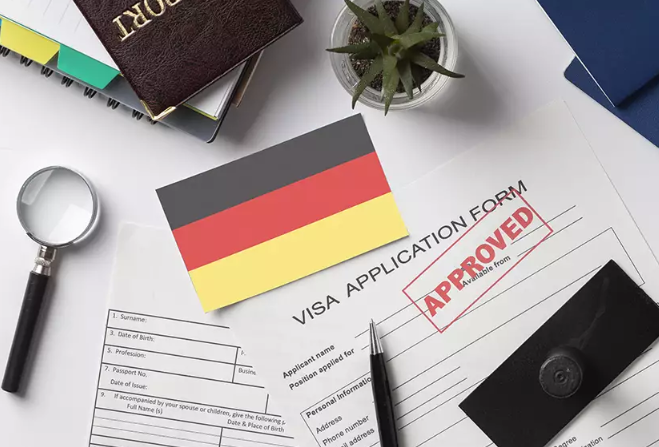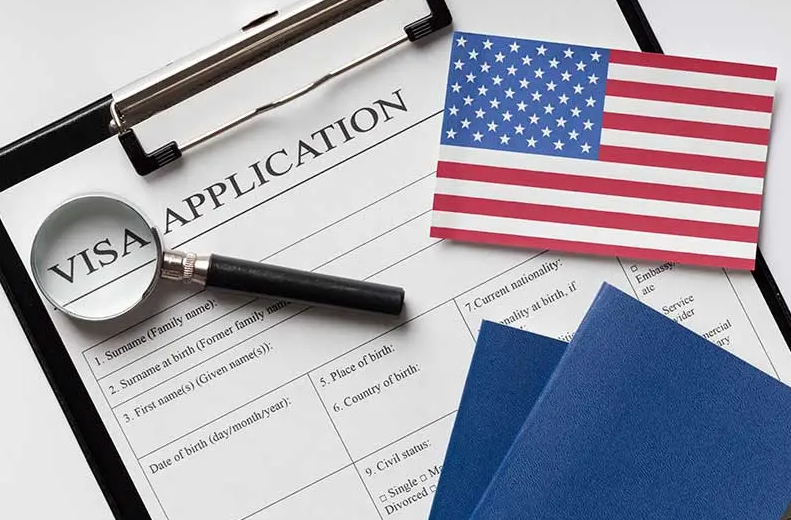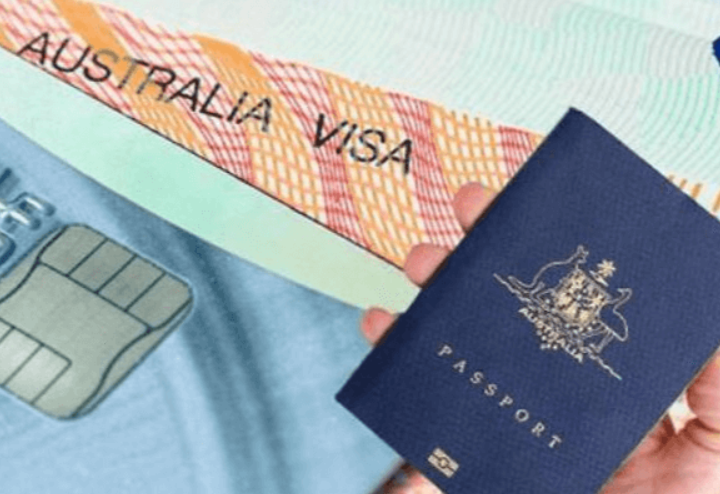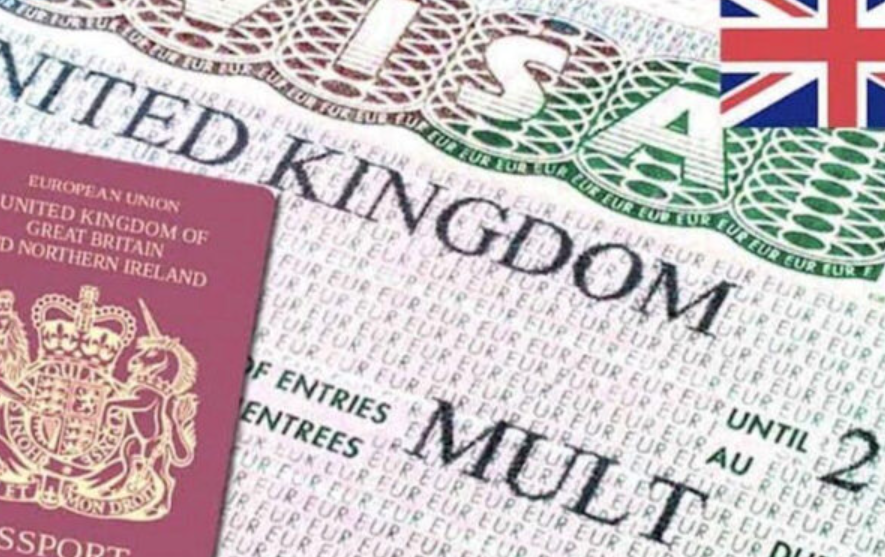The robust economy and diverse job market in Germany attracts talents from all over the globe. But navigating the visa process can feel like climbing a mountain. But what if there was a bridge, a carefully constructed pathway, allowing you to step onto German soil and actively pursue your professional aspirations? This bridge exists, and it’s called the Job Seeker Visa in Germany.
More than just a travel document, it’s a six-month invitation to immerse yourself in the German job market, a chance to prove your worth, and a potential springboard to a fulfilling life. We understand the ambition that fuels your journey, and we’re here to provide the tools and knowledge to make that journey a reality. Forget the generic advice and the vague instructions. Let’s embark on a detailed exploration of the Job Seeker Visa in Germany, transforming your aspirations into tangible achievements.
Why Pursue a Job Seeker Visa in Germany?
The Job Seeker Visa in Germany isn’t simply a means to an end; it’s a strategic investment in your professional future, a gateway to a wealth of opportunities that extend far beyond a paycheck. To truly understand its value, let’s delve into the multifaceted benefits that make this visa a compelling choice for ambitious individuals:
-
Direct Access to a Thriving Job Market:
- Germany boasts one of the strongest economies in Europe, with a diverse range of industries actively seeking skilled professionals. This visa allows you to tap into this robust market directly, bypassing the limitations of remote job applications.
- Unlike many countries, Germany prioritizes face-to-face interactions. The Job Seeker Visa in Germany enables you to attend interviews in person, build rapport with potential employers, and demonstrate your capabilities firsthand.
- The German “Mittelstand,” comprised of small and medium-sized enterprises, forms the backbone of the economy. These companies often value international talent and offer unique career paths.
-
Immersive Cultural and Professional Integration:
- Living in Germany during your job search provides invaluable cultural immersion. You’ll gain a deeper understanding of German work ethics, communication styles, and business practices.
- This firsthand experience allows you to assess whether Germany is the right fit for your long-term career goals and personal aspirations.
- Networking is crucial in Germany. The visa facilitates attendance at industry events, conferences, and meetups, allowing you to build valuable connections.
-
A Six-Month Window of Opportunity:
- The six-month validity of the visa provides ample time to explore job opportunities, network with professionals, and navigate the German job market.
- This period allows for a focused and intensive job search, free from the constraints of a tourist visa or the pressures of immediate employment.
- It lowers the risk of moving to Germany. The person can test the waters before commiting to a long-term residence.
-
Enhanced Employability:
- Demonstrating your commitment to working in Germany by obtaining a Job Seeker Visa in Germany can make you a more attractive candidate to potential employers.
- Your presence in Germany signals your willingness to integrate into the local workforce and your understanding of the German business environment.
- Employers often prefer candidates who are already legally residing in Germany, as it simplifies the hiring process.
-
Access to a High Quality of Life:
- Germany offers a high standard of living, with excellent healthcare, education, and social services.
- The country’s efficient infrastructure, public transportation, and cultural offerings contribute to a comfortable and enriching lifestyle.
- Germany is located in the middle of Europe, and offers many opportunities for travel.
-
Long Term opportunities:
- Finding a job while holding the job seeker visa, allows for the transition to a work permit, and then eventually, permanent residence.
- The job seeker visa, is a first step in a long-term plan for many immigrants.
The Job Seeker Visa in Germany is more than just a visa; it’s an investment in your future, a chance to build a fulfilling career in a dynamic and prosperous country. It’s a testament to your ambition and a gateway to a world of professional possibilities.
Who Qualifies for the Job Seeker Visa in Germany?
The Job Seeker Visa in Germany is a prized opportunity, but its eligibility criteria are specific and demand careful attention. It’s not a one-size-fits-all visa; rather, it’s tailored for highly qualified professionals who can demonstrably contribute to the German workforce. Let’s break down the key requirements and explore the nuances that determine your eligibility:
-
Recognized University Degree: The Cornerstone of Eligibility
- Equivalence is Key: Your foreign university degree must be recognized as equivalent to a German university degree. This is paramount. The Anabin database (anabin.kmk.org) is your primary resource for verification. It meticulously lists foreign educational institutions and their degrees, indicating their German equivalency.
- Anabin’s Role: Spend ample time on Anabin. Search for your university and degree program. If your qualification is marked as “entspricht” (corresponds) or “gleichwertig” (equivalent), you’re on the right track. If it’s marked as “fehlt” (missing), you may need to pursue further qualifications or explore alternative visa options.
- Degree Relevance: While equivalence is crucial, the relevance of your degree to the German job market also plays a role. Degrees in STEM fields (Science, Technology, Engineering, and Mathematics), healthcare, and IT are generally highly valued.
- Documentation: You’ll need to provide official transcripts, degree certificates, and, if necessary, certified translations. Legalization of these documents may also be required, depending on your country of origin.
-
Proof of Financial Resources: Ensuring Self-Sufficiency
- Blocked Bank Account: This is the most common method of demonstrating financial solvency. You’ll need to open a blocked bank account in Germany and deposit a specific amount, which covers your living expenses for the duration of your stay. The required amount is subject to change, so consult the German embassy or consulate for the latest figures.
- Formal Declaration of Sponsorship (Verpflichtungserklärung): If a German resident is willing to sponsor you, they can provide a formal declaration of sponsorship, guaranteeing to cover your living expenses. This requires the sponsor to provide proof of their financial stability.
- Other Acceptable Evidence: In some cases, other forms of financial proof may be accepted, such as proof of regular income or assets. However, a blocked bank account or a formal declaration of sponsorship are generally preferred.
- Realistic Budgeting: Beyond the minimum requirement, consider your actual living expenses in Germany. Factor in rent, food, transportation, health insurance, and other necessities.
-
Health Insurance:
- Comprehensive Coverage: You must have comprehensive health insurance that is valid in Germany. This insurance should cover medical treatment, hospitalization, and repatriation.
- Travel Health Insurance vs. German Health Insurance: Travel health insurance is usually enough for the visa application process. Once in Germany, it is advised to switch to German Public or private health insurance.
- Proof of Insurance: You’ll need to provide proof of your health insurance coverage when applying for the visa.
-
Valid Passport: Essential for International Travel
- Passport Validity: Your passport must be valid for the entire duration of your intended stay in Germany.
- Passport Copies: You’ll need to provide copies of your passport’s information pages and any relevant visas or stamps.
-
Proof of German Language Skills (Sometimes):
- Regional Variations: The requirement for German language skills can vary depending on the region in Germany where you intend to search for work and the specific profession you’re pursuing.
- Professions Requiring German: Certain professions, such as healthcare, education, and law, often require a high level of German proficiency.
- Benefits of German Skills: Even if not strictly required, having German language skills significantly enhances your job search and integration into German society.
- Language Certificates: If required, you’ll need to provide recognized German language certificates, such as those from the Goethe-Institut or TestDaF.
Additional Considerations:
- Professional Experience: While not always mandatory, having relevant professional experience can strengthen your application.
- Motivation Letter: A well-written motivation letter outlining your job search plans and reasons for wanting to work in Germany can be beneficial.
- Clean Criminal Record: You may be required to provide a police clearance certificate from your home country.
Meeting the eligibility criteria for the Job Seeker Visa in Germany requires meticulous preparation and attention to detail. Thoroughly research the requirements specific to your situation and ensure you have all the necessary documentation. Remember that the German authorities prioritize qualified professionals who can contribute to their economy.
Applying for the Job Seeker Visa for Immigrants in Germany
Securing a Job Seeker Visa in Germany requires a structured and meticulous approach. Here’s an expanded breakdown of the application process, highlighting crucial steps and providing in-depth guidance:
-
Meticulous Document Gathering:
- Comprehensive Checklist: Create a detailed checklist of all required documents, tailored to your specific situation. This includes passport, degree certificates, transcripts, financial proof, health insurance, CV, cover letter, and any other relevant documentation.
- Certified Translations: All documents not in German or English must be translated by a certified translator. Ensure the translations are accurate and reflect the original documents precisely.
- Legalization/Apostille: Depending on your country of origin, you may need to legalize your documents or obtain an apostille. Research the specific requirements for your country and ensure your documents are properly authenticated.
- Digital Copies: Create high-quality digital copies of all documents, as you may need to upload them during the application process.
- Document Organization: Organize your documents in a clear and logical manner, making them easy to access during the visa interview.
-
Scheduling the Appointment:
- Embassy/Consulate Website: Visit the website of the German embassy or consulate in your home country to find information on appointment scheduling.
- Online Appointment System: Many embassies and consulates use online appointment systems. Be prepared for potential waiting times, as appointment slots can fill up quickly.
- Early Scheduling: Schedule your appointment well in advance of your intended travel date to allow ample time for visa processing.
- Confirmation Email: Save your appointment confirmation email, as you may need to present it at the embassy or consulate.
- Double-Check Appointment Details: Verify the date, time, and location of your appointment to avoid any last-minute surprises.
-
The Visa Interview:
- Professional Attire: Dress professionally for your visa interview.
- Document Presentation: Bring all original documents and copies to the interview. Present them in an organized and clear manner.
- Clear and Concise Answers: Answer the interviewer’s questions honestly and concisely. Be prepared to discuss your qualifications, job search plans, and financial resources.
- Demonstrate Genuine Intent: Show your genuine interest in working in Germany and your commitment to integrating into German society.
- Show your research: Be prepared to show your research of the German job market, and your target industry.
- Prepare to show financial solvency: Be ready to clearly display your financial documents.
-
Visa Processing: Patience and Persistence
- Processing Times: Visa processing times can vary depending on the embassy or consulate and the complexity of your application.
- Application Tracking: If available, track your application status online.
- Contact the Embassy/Consulate: If you have any questions or concerns, contact the embassy or consulate for assistance.
- Avoid Unnecessary Inquiries: Frequent inquiries can delay the processing of your application.
-
Travel to Germany: Your Journey Begins
- Visa Validity: Ensure your visa is valid before you travel to Germany.
- Travel Arrangements: Book your flights and accommodation in advance.
- Essential Documents: Carry all essential documents with you when you travel, including your passport, visa, and proof of financial resources.
-
Address Registration (Anmeldung):
- Two-Week Deadline: Within two weeks of arriving in Germany, you must register your address at the local registration office (Bürgeramt).
- Registration Certificate (Meldebescheinigung): You’ll receive a registration certificate, which is an essential document for various administrative procedures in Germany.
- Required Documents: Bring your passport, visa, and proof of residence to the registration office.
-
Job Search:
- Online Job Portals: Utilize online job portals such as Indeed.de, StepStone, and LinkedIn.
- Networking Events: Attend industry events, conferences, and meetups to network with professionals in your field.
- Company Websites: Visit the websites of companies you’re interested in and apply for open positions.
- German Language Skills: Even basic German language skills can significantly enhance your job search.
- Professional Networking Platforms: Use Xing, the German equivalent of LinkedIn, to expand your network.
-
Transitioning to a Work Permit:
- Job Offer: Once you receive a job offer, your employer will typically assist you in applying for a work permit.
- Work Permit Requirements: The requirements for a work permit can vary depending on your profession and qualifications.
- Long-Term Residence: A work permit can lead to long-term residence in Germany.
By following these expanded steps and paying close attention to detail, you can increase your chances of successfully obtaining a Job Seeker Visa in Germany and embark on your German career journey.
Navigating the Challenges and Considerations
While the Job Seeker Visa in Germany offers a fantastic opportunity, it’s crucial to acknowledge the potential challenges and considerations that come with this journey. A realistic perspective will help you prepare and adapt effectively.
-
The Language Barrier: Beyond Basic Communication
- Professional German: While everyday German might suffice for basic interactions, navigating the professional landscape requires a deeper understanding of industry-specific terminology and formal communication.
- Cultural Nuances: Language isn’t just about vocabulary; it’s about understanding cultural nuances and communication styles. Misunderstandings can arise from subtle differences in tone, phrasing, and nonverbal cues.
- Continuous Learning: Language acquisition is an ongoing process. Even after achieving a certain level of proficiency, continuous learning and practice are essential for seamless integration.
- Resources: Utilize language learning apps, online courses, and local language schools to enhance your German skills. Consider tandem language exchanges with native speakers.
-
Cultural Differences: Adapting to a New Environment
- Workplace Culture: German workplace culture is often characterized by directness, punctuality, and a strong emphasis on efficiency. Be prepared for a more formal and structured work environment.
- Social Norms: Familiarize yourself with German social norms and etiquette. Understanding these nuances will help you build positive relationships with colleagues and locals.
- Integration Challenges: Adapting to a new culture can take time. Be patient with yourself and embrace the learning process.
- Open Mindedness: Approach cultural differences with an open mind and a willingness to learn. Avoid making assumptions or generalizations.
-
Bureaucratic Hurdles: Patience and Persistence
- Complex Procedures: German bureaucracy can be complex and time-consuming. Be prepared for paperwork, long waiting times, and potential delays.
- Information Gathering: Thoroughly research the required procedures and documentation. Seek clarification from official sources when needed.
- Organization: Maintain meticulous records of all documents and correspondence.
- Seeking Help: Don’t hesitate to seek assistance from immigration advisors, integration centers, or other support organizations.
-
Financial Planning: Budgeting for the Unexpected
- Cost of Living: Germany’s cost of living can vary significantly depending on the city and region. Research living expenses in your target area and create a realistic budget.
- Emergency Fund: Set aside an emergency fund to cover unexpected expenses, such as medical bills or unforeseen travel costs.
- Bank Accounts: Familiarize yourself with the German banking system and open a local bank account.
- Tax System: Understand the German tax system and your tax obligations.
-
Job Market Realities: Competition and Perseverance
- Competitive Landscape: The German job market can be competitive, especially for certain professions. Be prepared to face rejection and persist in your job search.
- Networking Importance: Networking is crucial in Germany. Attend industry events, connect with professionals on LinkedIn and Xing, and build relationships with potential employers.
- Realistic Expectations: Set realistic expectations for your job search. It may take time to find the right opportunity.
- Utilizing all resources: Use all available resources, including job portals, recruitment agencies, and professional networks.
-
Loneliness and Homesickness:
- Building a Support Network: Actively seek out social connections and build a support network in Germany.
- Maintaining Connections: Stay in touch with friends and family back home.
- Exploring Your Surroundings: Explore your new surroundings and engage in activities that you enjoy.
- Seeking Support: If you’re struggling with loneliness or homesickness, don’t hesitate to seek support from counseling services or support groups.
-
Visa Regulation Changes:
- Staying Updated: Visa regulations can change. It is extremely important to stay up to date with the latest information from official sources.
- Official Sources: Only use official government websites, and official embassy websites. Avoid unofficial websites or forum posts.
- Consulting Professionals: If you have questions, consult with an immigration lawyer, or other professional that has experience with German visa process.
Considerations for Long-Term Plans:
- Integration Goals: Define your long-term integration goals. Do you plan to stay in Germany permanently?
- Language Proficiency: Invest in continuous German language learning to enhance your integration prospects.
- Cultural Adaptation: Embrace German culture and actively participate in social activities.
- Professional Development: Seek opportunities for professional development to advance your career in Germany.
By acknowledging these challenges and considerations, you can approach your Job Seeker Visa in Germany journey with a realistic perspective and develop strategies to overcome potential obstacles. Remember that perseverance, adaptability, and a proactive approach are key to success.
The Future of the Job Seeker Visa in Germany
The future of the Job Seeker Visa in Germany is tied to Germany’s ongoing need for skilled foreign workers. Here’s a summary of its potential future:
- Continued Importance: Given Germany’s aging population and strong economy, the need for skilled professionals from outside the EU is likely to remain. Therefore, the Job Seeker Visa should continue to be a vital tool.
- Potential Adjustments: Visa regulations are subject to change based on economic and political factors. Future adjustments might focus on streamlining the application process, prioritizing specific professions, or adapting to evolving labor market demands.
- Focus on Skilled Workers: Germany’s emphasis on attracting highly qualified professionals is likely to continue. Expect requirements to remain stringent, with a focus on recognized qualifications and demonstrable skills.
- Digitalization: The German government is increasingly embracing digitalization. Future application processes may become more streamlined through online portals and digital document submissions.
- Integration Emphasis: Alongside attracting skilled workers, Germany will likely continue to emphasize integration. This could mean increased requirements for German language skills or participation in integration courses.
- Adaptation to Labor Market Needs: The visa’s requirements and target professions may adapt to reflect the changing needs of the German labor market, particularly in sectors like technology, healthcare, and renewable energy.
- Increased competition: As more people learn of the visa, and as the world becomes more global, competition for those visas could increase.
While the specifics may evolve, the Job Seeker Visa in Germany is poised to remain a crucial pathway for qualified individuals seeking to build their careers in Germany. Staying informed about the latest regulations and adapting to potential changes will be key for future applicants.
Conclusion
The Job Seeker Visa in Germany is your gateway to a world of professional opportunities. By diligently preparing your application, understanding the requirements, and utilizing available resources, you can increase your chances of success. Embrace the challenge, and you might just find your dream job in the heart of Europe. Remember, the journey to a successful career in Germany starts with a well-prepared Job Seeker Visa in Germany application.





